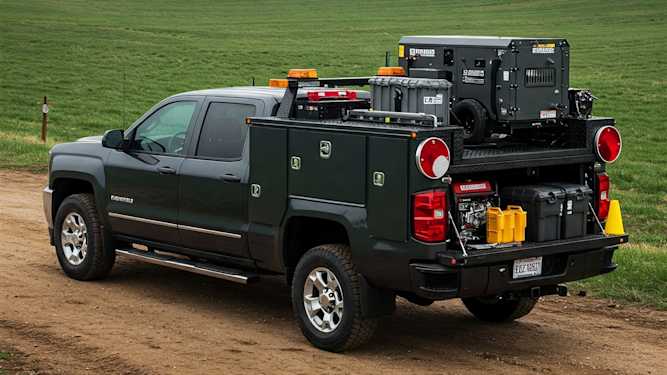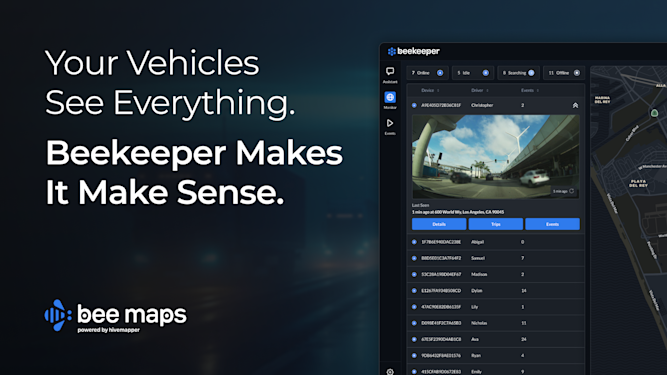The Latest Buzz
Can EV Trucks Use Public Charging Stations?

As electric vehicles (EVs) become more common, people are curious about the future of EV trucks, including EV fleets and commercial semi trucks. From a consumer standpoint the term "charge anxiety" is the fear of not being able to find a place to charge your car. These fears on the consumer side are equal to feasibility planning and total cost of ownership on the commercial side.
Can you Charge EV Trucks at Public Charging Stations?
The short answer is yes, but it depends on the type of truck and it's use case.
The longer answer is for class 1 -5 EV Trucks it is possible to use Class2 and DCFC charging, but for EV trucks in class 6-8 (some medium and all heavy duty) they require stations with DCFC charging.
EV Truck Charging Capacity by Class
Class / Gross Vehicle Weight Rating (GVWR) | Example | Level 2 Charge Capacity | DCFC Charging Capacity |
Class 1
less than 6,000 lbs | 2023 Rivian R1S
180 kWh | 11.5kW | 200.0 kW |
Class 2
6,001–10,000 lbs | 2024 Tesla Cybertruck AWD | 11.5kW | 250.0 kW |
Class 3
10,001–14,000 lbs | 2020 Isuzu SEA Isuzu NQR Class 3 Low Cab Forward Truck w/SEA-Drive 100a Power System - 100 kWh | 19.2kW | 120.0 kW |
Class 4
14,001–16,000 lbs | 2020 Ford SEA Ford F-450 Class 4 Truck w/SEA-Drive 120 Power System - 138 kWh | 19.2kW | 120.0 kW |
Class 5
16,001–19,500 lbs | 2020 Ford SEA Ford F-550 Class 5 Truck w/SEA-Drive 120 Power System - 138 kWh | 19.2kW | 120.0 kW |
Class 6
19,501–26,000 lbs | 2021 International eMV Series Class 6 - 107 kWh | NOT AVAILABLE | 125.0 kW |
Class 7
26,001–33,000 lbs | 2021 International eMV Series Class 7 - 107 kWh | NOT AVAILABLE | 125.0 kW |
Class 8
33,001 lbs and greater | 2024 Volvo VNR Electric 6x4 Tractor - 565 kWh | NOT AVAILABLE | 250.0 kW |
Charging Compatibility for Electric Trucks
Many light-duty and medium-duty electric trucks can use the same charging stations as electric cars. These trucks often have similar charging ports, like the Combined Charging System (CCS) or CHAdeMO connectors. If the truck’s charging port matches the station's connector, it can charge without issues. Charging networks such as Electrify Americaand ChargePoint already support larger vehicles at some stations, making it easier for trucks to recharge.
However, things get more complicated when it comes to heavy-duty electric trucks. These larger trucks have bigger batteries, meaning they need more energy to charge. Standard EV charging stations, which offer 50 kW to 350 kW of power, may not provide enough power for heavy-duty trucks. This can result in longer charging times, which is not ideal for businesses that rely on fast operations.
The Power Problem for Heavy-Duty Trucks
One of the biggest challenges with charging heavy-duty electric trucks is the amount of power they require. Most public EV charging stations are designed for electric cars and smaller trucks. They don’t deliver the high power levels that large trucks need. Heavy-duty trucks can require as much as 1 MW (1,000 kW) of power, far more than what most current stations can provide. This makes charging these trucks a slower process compared to electric cars.
Thankfully, new solutions are being developed. The Megawatt Charging System (MCS) is a new type of charger designed for heavy-duty trucks. MCS will provide much higher power levels, allowing these large trucks to charge faster and more efficiently. Once MCS chargers become available, electric trucks will be able to refuel in a shorter time, making them more practical for industries that need quick charging.
Tesla's Semi Charging Stations
The Future of Truck Charging
As the number of electric trucks increases, the charging infrastructure will have to evolve to keep up. Some companies, especially fleet operators and logistics providers, are already investing in dedicated truck charging stations that offer higher power. These hubs are designed to meet the needs of large electric trucks, allowing them to charge quickly and get back on the road.
Public charging networks are also starting to expand. More stations are being built that can support both electric cars and trucks. These new stations will make it easier for truck drivers to find charging spots, especially on long trips.
Charging Trucks: The Road Ahead
In summary, many electric trucks can use existing EV charging stations, but heavy-duty trucks often need special chargers. As charging technology improves and new systems like MCS are introduced, the process of charging electric trucks will become faster and easier. This progress is essential for the growth of electric trucks and the businesses that rely on them.
Share Post


